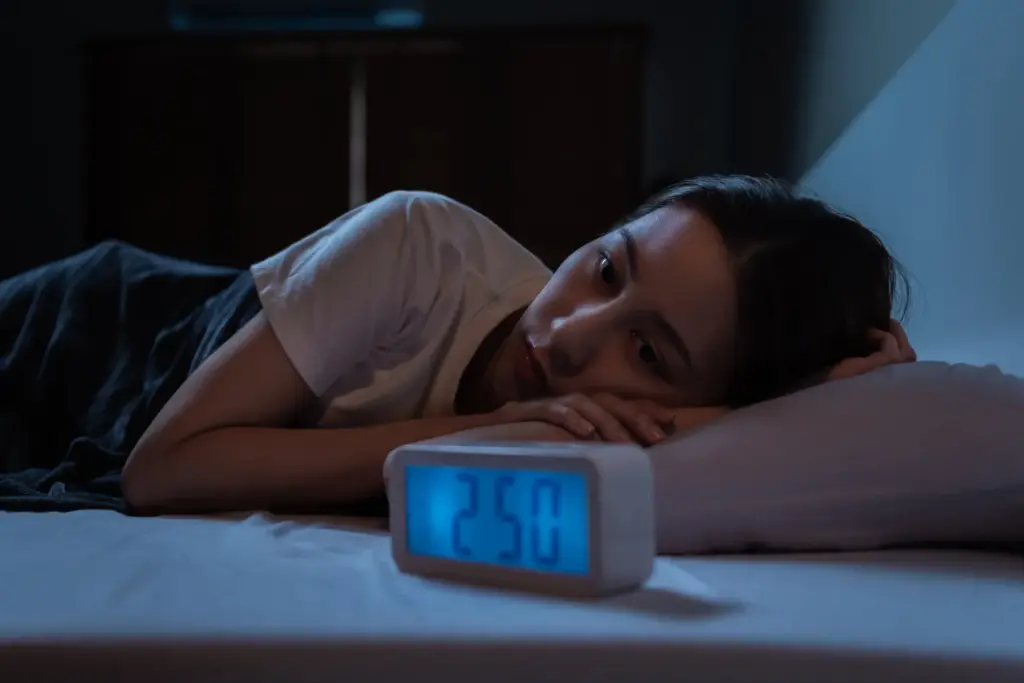Are you having trouble sleeping or fed up with not waking up feeling as well rested
as you should be? Although no “magic cure” exists for insomnia, there are ways to
upgrade your sleep routine and get the most out of your rest.
What Is Insomnia?
Insomnia is the medical name for having trouble
with your sleep — difficulty falling, staying, or getting quality sleep. It is one
of the most common sleep disorders, impacting between 10 to 60% of the world
population. Insomnia can be acute (short-term, occurring between a few days and a
few weeks) or chronic (long-term).
What Causes Insomnia?
There is no single cause for insomnia — it’s often a combination of physical
components, psychological factors, and poor sleep habits.
Common causes of insomnia include:
- Changes to your normal schedule
- Hormonal changes (including pregnancy and menopause)
- Life changes
- Medication side effects
- Restless legs syndrome
- Sleep apnea
- Sleeping environment
- Stress
- Substance use
Regardless of the causes of insomnia, the lack of quality sleep can have significant health repercussions. If you’re
experiencing sleep problems, it’s best to make a plan to address them as soon as
possible.
Can You Relieve Insomnia in 12 Minutes?
If you’ve landed here because you want to know how to get insomnia relief in 12
minutes, don’t get your timer out yet. Focusing on falling asleep in a specific time
frame will only worsen insomnia
symptoms.
However, there are ways to help create a more supportive bedtime routine and make the
process easier. Insomnia treatment is mainly about recognition and symptom
management. While sleeping pills may temporarily help, it’s best to address the root
cause directly.
How Can You Address Insomnia and Get Better Sleep?
So, how can you get better sleep? It comes down to a few important components.
Quality sleep isn’t out of reach for anyone with the correct information and
support.
Address Underlying Health Conditions
If you’re having trouble sleeping, you should start by ruling out or addressing any
underlying health conditions that may be contributing. Certain medication
conditions, like sleep apnea, blood pressure concerns, restless legs syndrome, and
thyroid dysfunction, can all negatively impact your sleep.
A healthcare provider should manage these medical conditions, as many require medical
intervention like a continuous positive airway pressure (CPAP) machine.
Consider Psychological Factors
After ruling out or addressing underlying health conditions, the next step is
considering psychological factors. Take our free sleep quiz to
identify anything that may be impacting your sleep, and consider working with a
CBT-I (cognitive behavioral therapy for insomnia) coach to create a customized plan
to address them.
Stress can impact more than just your sleep, both short-term and long-term. Finding a
way to manage stress — deep breathing techniques, mindfulness meditation,
progressive muscle relaxation — is crucial for optimal physical and mental health.
Over time, chronic stress can lower your immune system, trigger higher stress hormone
levels in the body, and contribute to developing or worsening certain health
conditions.
Make Lifestyle Changes
Lifestyle changes can also play a role in how well you sleep. Making healthy
lifestyle changes can help support sleep quality in various ways, but only when
combined with addressing the psychological and physiological factors.
Try adding more physical activity to your routine, as workouts are excellent for your
physical and emotional well-being. Just be sure to schedule your workouts at least
two hours before bedtime, as exercise can release endorphins and increase energy —
in other words, exercising too close to bedtime may keep you up at night. You can
also practice breathing exercises or relaxation techniques before bedtime to enhance
your sleep quality.
It’s also important to maintain a healthy diet. Eating clean, nutritious foods can
help prevent health issues and assist in getting regular sleep. A diet full of
caffeine, processed food, and sugar, on the other hand, can negatively impact your
sleep patterns.
Finally, use naps appropriately. Napping isn’t inherently bad, but it can impact your
ability to get a good night’s sleep if you end up falling into a deep sleep mid-day
for too long. Try to keep your naps to 20 minutes or less.
Revamp Your Sleeping Environment
The physical environment you sleep in significantly impacts your sleep, too. Sleep
disturbances related to environmental noise can even be a potential threat to
your health, especially if those disturbances escalate to chronic insomnia.
The goal is to create a supportive sleep environment where you don’t wake up in the
middle of the night and can get at least seven quality hours of sleep. Factors to
pay attention to in your sleeping environment include the room temperature (not too
hot or cold), mattress comfort, darkness level, blue light exposure from electronic
devices, and ambient noise.
Stick to a Routine
As with most new habits, setting and sticking with a routine is key. Consistency is
the only way to form lasting habits, it’s important to design a sleep schedule that
works for you.
When your routine gets thrown off, like if you’re traveling or dealing with a shift
work schedules, you’re more likely to experience some short-term insomnia. Although
jet lag and disruptions to your circadian rhythm (your natural sleep/wake cycle)
can’t be avoided in those situations, getting back to your routine as soon as
possible can help you minimize the side effects.
The Bottom Line
While you can’t get rid of insomnia in 12 minutes, you can upgrade your
sleep hygiene in ways that can improve both the quality and quantity of your rest.
Addressing underlying health conditions, considering psychological factors, making
lifestyle changes, revamping your sleeping environment, and sticking to a routine
are all excellent places to start.
Take our free sleep quiz to start your healthy sleep
journey.
Sources:
What Is
Insomnia? | NHLBI, NIH
The
assessment and management of insomnia: an update | PMC
Sleep is
essential to health | American Academy of Sleep Medicine
Environmental noise and sleep disturbances: A threat
to health? | PMC






